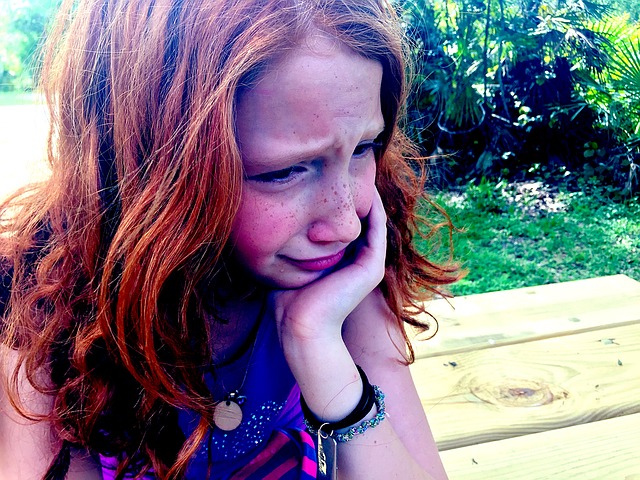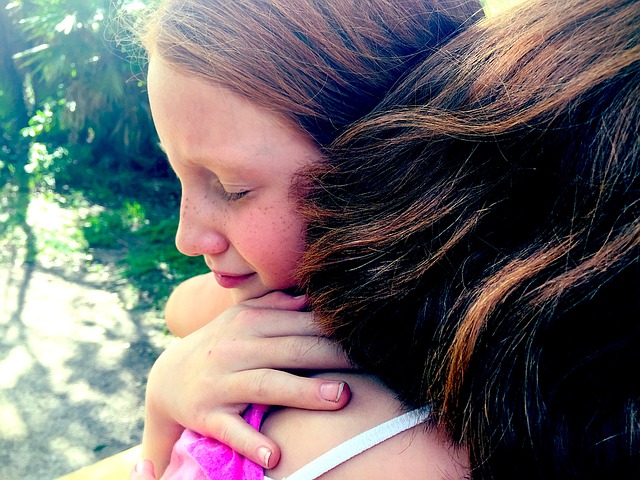Tips for Helping Kids Through Grief

 Dr Melanie Turner is a child and adolescent psychiatrist who works in Norwood South Australia. She is the director of her practice MyChild Psychiatry and Psychology, is a senior clinical lecturer at The University of Adelaide, works with the Royal Australian and New Zealand College of Psychiatry in training and assessing our future psychiatrists and completed her PhD at the University of Adelaide in 2015. She is passionate about family and child mental health, building strong foundations for adulthood and recognising the needs of children for a loving, accepting and patient world.
Dr Melanie Turner is a child and adolescent psychiatrist who works in Norwood South Australia. She is the director of her practice MyChild Psychiatry and Psychology, is a senior clinical lecturer at The University of Adelaide, works with the Royal Australian and New Zealand College of Psychiatry in training and assessing our future psychiatrists and completed her PhD at the University of Adelaide in 2015. She is passionate about family and child mental health, building strong foundations for adulthood and recognising the needs of children for a loving, accepting and patient world.
Tips for Helping Kids Through Grief
For many of us our first experience of grief and loss is when we are children. The tradition used to be to exclude children from any of the experience of death, grief or the ceremonies surrounding these. Children however need to be able to share their feelings including grief with their family and friends.
Children develop their understanding of life and death as they move from toddlerhood to childhood. In their baby years, children feel as though they are connected to their parents and are only just beginning to learn that we can leave and then return. This is why they get anxious when we leave. Then kids learn that we leave and can come back, such as after dropping off at kindy. By the time children enter primary school their view of life and death has begun to have a deeper meaning. So, if your child is exposed to someone dying, or a death it is helpful to know what their understanding is of life.
If your kindergarten child has a relative that has died, it is helpful to talk about their death in the terms of them leaving and not returning. It is hard for them to hold in their mind the concept that someone has gone ‘forever’. They can be confused about what you mean, and it is common for them to ask about the person that has died, where they went and when they will return. Gentle explanation that they have died, which means that their body stopped working. Kids will need gentle explanation and comfort. Not all children this age need to go to a funeral or attend a viewing; for some that experience can be confusing and distressing. You as parents can determine what you think is right for your children.
In primary school, kids have a clearer understanding of death and this becomes much clearer as they reach the age of 7 and 8. In these early primary school years, children will have feelings around death, may wonder if they caused it to occur and be frightened that their family members may die too. Honest, short and clear answers are helpful. Writing a story, letter or a poem for the person who passed can be a way for the kids to communicate their feelings and to say goodbye.
Older primary school age kids have a clearer understanding of how and why people die and may have many questions about the causes of their death and about the funeral. They will still need help to give words to their feelings and might ask more about how other people are feeling about the death.
In high school years kids have a clear idea of death, its impact on others and its permanency. In these years kids are more likely to hear about friends and family members who have died and it is particularly hard when it is someone closer in age. Often kids will be highly distressed, angry or anxious and often need time with friends and family to move through their grief. Teens may use music, art, sport, and their friendships to help work through the range of feelings.
We often associate grief with death, but it is important to know that we also grieve when we lose significant friendships, families separate or migrate, we undergo trauma or significant life changes such as bankruptcy. Our grief and loss feelings can be very intense, and kids too will need support and love.
An Overview of Tips for Helping Kids through Grief
Kindy age
- You only need to break news of a death if the person is well known to the child
- A short and gentle explanation of them having died because they became very ill and their body couldn’t keep working
- Showing care and love with cuddles and play
- Loss of a parent at this age is very confusing, and family support with a reinforcement of the relationships you have is very important
Early primary school age
- You will need to break news of a death if the family knew the person and if they had a role in the child’s life
- If they are going to he funeral then some preparation about what it will be like, look like and preparation for other people’s sadness is important
- Having time off with family before and after the funeral can also be a helpful time to support their feelings of loss
Later primary school age
- At this stage there are more questions about death, why someone died, and they are likely to need more private time with you to talk about the death
- More participation in the family/group gatherings around the death means they will be more exposed to others’ feelings
- They may want to participate in the funeral proceedings including doing a reading, handing out the order or the service
- Being honest, caring and patient as you are likely to be asked questions about the funeral and its meaning for some time
High School Age
- Losses can be more confusing at this age, when relationships become more complicated and teenagers are more likely to lose friends and friends parents
- They often seek to be with friends as a way of coping
- Mood changes and irritability are more common as a way of grief and may last for weeks around the death.
- Supporting communication, encouraging talking about their feelings around the loss and also giving private space for mourning are important














